The Primacy of Ireland was historically disputed between the Archbishop of Armagh and the Archbishop of Dublin until finally settled by Pope Innocent VI. Primate is a title of honour denoting ceremonial precedence in the Church, and in the Middle Ages there was an intense rivalry between the two archbishoprics as to seniority. Since 1353 the Archbishop of Armagh has been titled Primate of All Ireland and the Archbishop of Dublin Primate of Ireland, signifying that they are the senior churchmen on the island of Ireland, the Primate of All Ireland being the more senior. The titles are used by both the Catholic and Church of Ireland bishops. The distinction mirrors that in the Church of England between the Primate of All England, the Archbishop of Canterbury, and the Primate of England, the Archbishop of York.
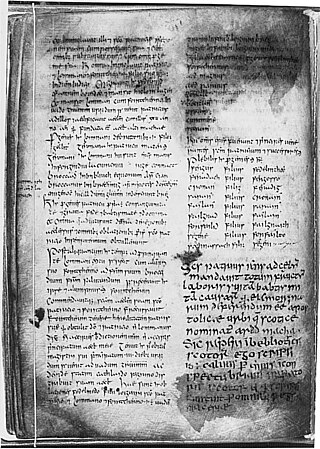
The Book of Armagh or Codex Ardmachanus, also known as the Canon of Patrick and the Liber Ar(d)machanus, is a 9th-century Irish illuminated manuscript written mainly in Latin. It is held by the Library of Trinity College Dublin. The document is valuable for containing early texts relating to St Patrick and some of the oldest surviving specimens of Old Irish, and for being one of the earliest manuscripts produced by an insular church to contain a near complete copy of the New Testament.
Armagh was an Irish constituency in the House of Commons of the United Kingdom from 1801 to 1885.
The Anglican Archbishop of Armagh is the ecclesiastical head of the Church of Ireland, bearing the title Primate of All Ireland, the metropolitan of the Province of Armagh and the diocesan bishop of the Diocese of Armagh.
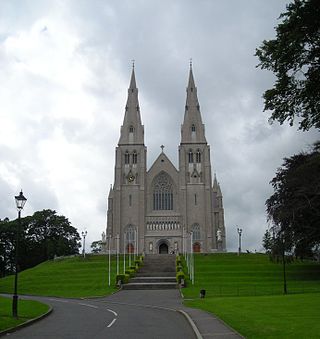
The Archdiocese of Armagh is a Latin ecclesiastical territory or archdiocese of the Catholic Church located in the northern part of Ireland. The ordinary is the Roman Catholic Archbishop of Armagh who is also the Metropolitan of the Ecclesiastical province of Armagh and the Primate of All Ireland. The mother church is St Patrick's Cathedral. The claim of the archdiocese to pre-eminence in Ireland as the primatial see rests upon its traditional establishment by Saint Patrick circa 445. It was recognised as a metropolitan province in 1152 by the Synod of Kells.
Mainchín mac Setnai, also anglicised to Munchin, was allegedly the founder of the church of Luimneach, Ireland, and a saint in Irish tradition, acquiring special eminence as patron of Limerick City. Both his origins and the date of his association with the city are debated.
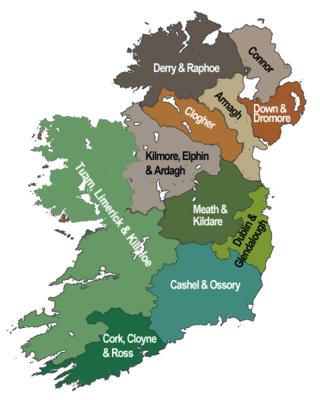
The United Provinces of Dublin and Cashel, commonly called the Province of Dublin, and also known as the Southern Province, is one of the two ecclesiastical provinces that together form the Church of Ireland; the other is the Province of Armagh. The province has existed since 1833 when the ancient Province of Dublin was merged with the Province of Cashel. Its metropolitan bishop is the Archbishop of Dublin.

Francis Johnston was an Anglo/Irish architect, best known for building the General Post Office (GPO) on O'Connell Street, Dublin.
George Otto Simms was an archbishop in the Church of Ireland, and a scholar.
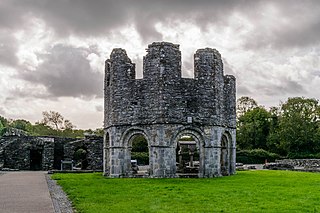
The Synod of Kells took place in 1152, under the presidency of Giovanni Cardinal Paparoni, and continued the process begun at the Synod of Ráth Breasail (1111) of reforming the Irish church. The sessions were divided between the abbeys of Kells and Mellifont, and in later times the synod has been called the Synod of Kells-Mellifont and the Synod of Mellifont-Kells.
Muirchú moccu Machtheni, usually known simply as Muirchú, was a monk and historian from Leinster. He wrote the Vita sancti Patricii, known in English as The Life of Saint Patrick, one of the first accounts of the fifth-century saint, and which credits Patrick with the conversion of Ireland in advance of the spread of monasticism. This work was dedicated to Bishop Aedh of Slébte, who was also the one who suggested the biography be written, and was the patron for the work. Muirchú's work is of little historical value in relation to the distant fifth century, but is a useful source for the time in which he lived and how Patrick was viewed in the seventh century.
The Archbishopric of Tuam existed from the mid twelfth century until 1839, with its seat at Tuam.

The Archbishop of Dublin is a senior bishop in the Church of Ireland, second only to the Archbishop of Armagh. The archbishop is the diocesan bishop of the United Dioceses of Dublin and Glendalough and the metropolitan bishop of the Province of Dublin, which covers the southern half of Ireland, and he is styled Primate of Ireland.

John Baptist Crozier was a Church of Ireland bishop. He served as Bishop of Ossory, Ferns and Leighlin (1897–1907), Bishop of Down, Connor and Dromore (1907–1911), Primate of All Ireland and Archbishop of Armagh (1911–1920).

Henry de Loundres was an Anglo-Norman churchman who was Archbishop of Dublin, from 1213 to 1228. He was an influential figure in the reign of John of England, an administrator and loyalist to the king, and is mentioned in the text of Magna Carta, the terms of which he helped to negotiate.

The Archbishop of Armagh is an archiepiscopal title which takes its name from the city of Armagh in Northern Ireland. Since the Reformation, there have been parallel apostolic successions to the title: one in the Roman Catholic Church and the other in the Church of Ireland. The archbishop of each denomination also holds the title of Primate of All Ireland.
William Reeves was an Irish antiquarian and the Church of Ireland Bishop of Down, Connor and Dromore from 1886 until his death. He was the last private keeper of the Book of Armagh and at the time of his death was President of the Royal Irish Academy.
James Margetson was an English churchman, Church of Ireland Archbishop of Armagh from 1663 till 1678.
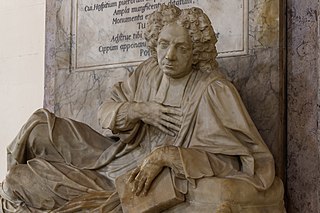
Peter Drelincourt, was Dean of Armagh. He was the sixth son of Charles Drelincourt, minister of the reformed church in Paris, and graduated M.A. at Trinity College, Dublin, 1681, and LL.D. 1691.
Michael Kieran was an Irish prelate of the Roman Catholic Church. He served as the Archbishop of Armagh and Primate of All Ireland from 1866 to 1869.










